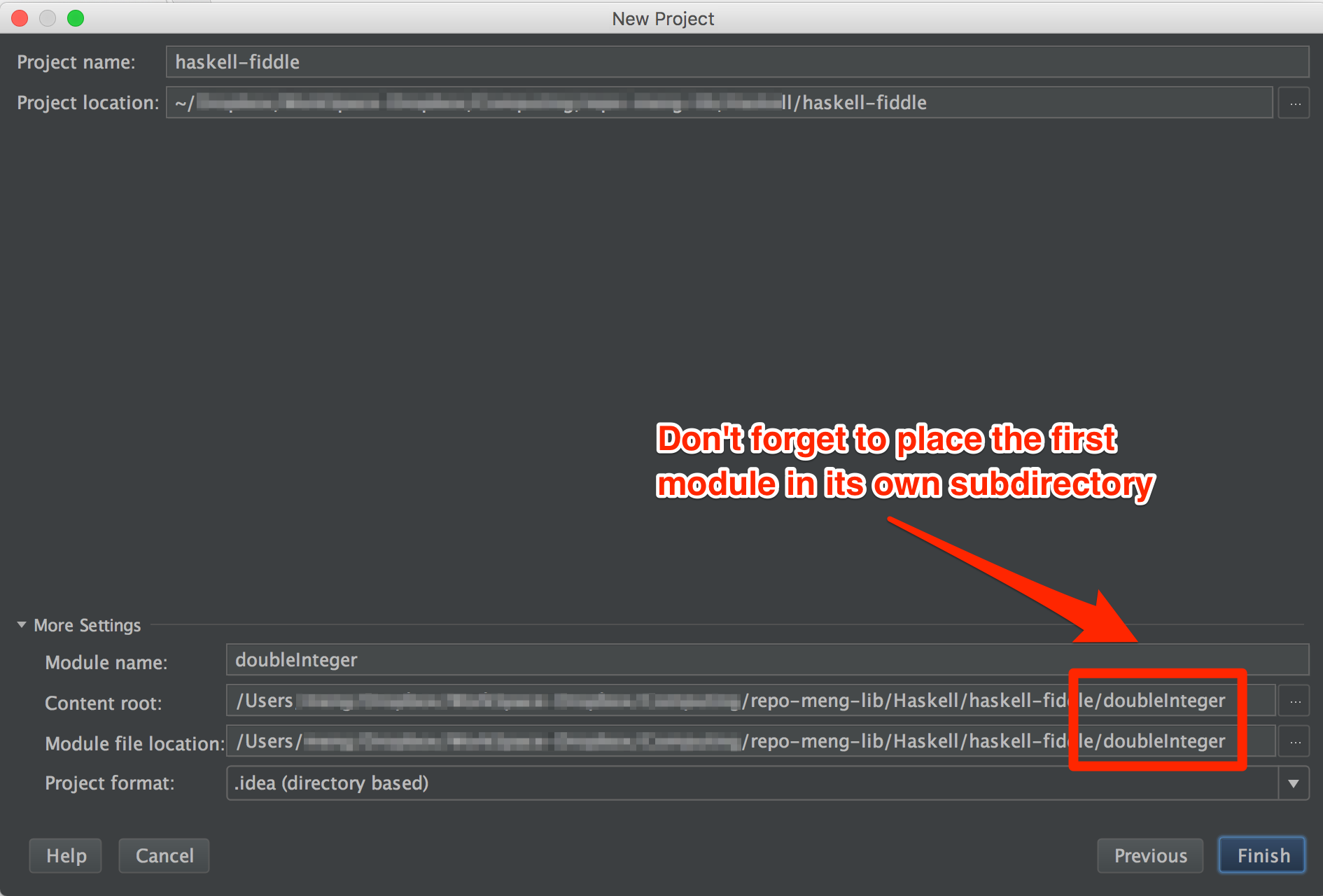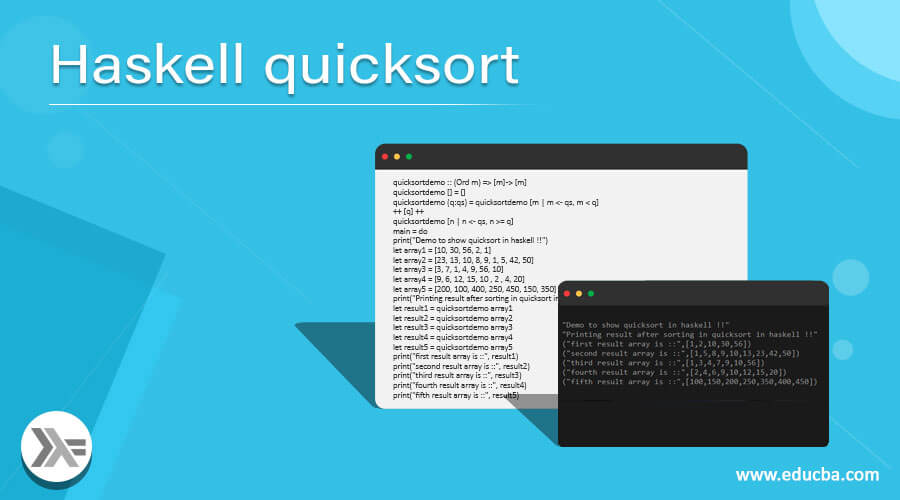

#HASKELL TUTORIAL HOW TO#
Write Yourself a Scheme in 48 Hours - An alternate approach to teaching Haskell (and perhaps Scheme), aimed at a more advanced audience (though not necessarily one that knows how to program!).The following may be read independently, but their content has been imported and adapted already into the Wikibook here Tutorials that have been incorporated into the Haskell Wikibook Built around case studies of practical applications. Real World Haskell - an O'Reilly book, available online at no charge (CC BY-NC license).Available online at no charge (CC BY-NC-SA license) also released as a conventional book. Learn You a Haskell for Great Good - Tutorial aimed at beginners who may have experience in imperative programming languages but haven't programmed in a functional language before.Haskell Meta-tutorial - the tutorial to find other tutorials.Seasoned programmers may read the overview to quickly evaluate what makes Haskell unique and different from other languages.

The last section, which covers practical use cases, depends only on the Beginner's Track.

The book is divided into three sections: a Beginner's Track, an Advanced Track, and a section called Haskell in Practice. Learning to see the world through the warped mindset of a functional programmer is an adventure in a brave new world, which brings knowledge valuable far beyond the boundaries of any language. The languages you are familiar with are likely to differ greatly from Haskell, and the habits acquired from those languages might make it difficult to understand how things work - Haskell is simple, but different. We urge seasoned programmers to be especially patient with this process. Our aim in this book is to introduce you to the Haskell programming language - from the very basics to advanced features - and to computer programming in general.
#HASKELL TUTORIAL CODE#
Haskell is enjoyable to use because dealing with pure functions makes code much easier to reason about, and the advanced type system helps catch silly and profound mistakes. Haskell provides a modern type system with state of the art features like typeclasses and generalized algebraic data types (soon enough, terms like those will roll smoothly off your tongue).Evaluations are performed only when needed. Haskell is a general-purpose, purely functional programming language incorporating many recent innovations in programming language design. A function when invoked using the same arguments will return the same result every time. In other typed languages you have to say what a type of a variable is.in Haskell the compiler figures things out for you so you don't have to type it.Haskell is a functional programming language. Perhaps one of the most awesome things about Haskell is it's type inference. There are no side ually anyway (there's one exception), in reality what it means is that if a function causes any side effects it is explicit. Applying a function multiple times with the same parameters will produce the same results. It is pure, this means a couple of things. Every variable in Haskell has a type e.g Int, String etc. In other words, you compile it to machine code. Haskell is a statically typed,pure, expressive functional programming language. You can express otherwise impossible things(i.e.It chips away so much boiler plate code.It's interesting and sufficiently different to other languages to the point where it doesn't feel like a boring routine working with it.Older versions of the language are now obsolete Haskell users are encouraged to use Haskell 98. The Haskell language has evolved significantly since its birth in 1987. It integrates amazingly with C and C++ (with some C wrapper or small modifications) For a useful survey of functional programming languages and techniques, including some of the language design principles used in Haskell, see.The concepts and ideas you find in Haskell opens your mind to a raft of different things.Since I continue to learn new things about Haskell, I'll try to continue adding stuff. Unfortunately I didn't do this while I was stuck, the repo came after I could write some OK looking haskell so it may not be quite accurate in portraying exactly what I did, but it's as much as I remember. School of Haskell Learning Haskell a tutorial combining clear explanations, graphics programming, and hands-on screencasts to teach you the essential concepts of functional programming in Haskell. So this repo is a simple site that includes a bunch of progressive exercises I've done which helped. The point is by the end of it all I could read and understand most Haskell source code I came across but when I was ready to write some custom stuff I came up blank. Both great books that I would recommend.Īctually technically I skimmed both books. I read Learn you a Haskell and Real world Haskell. This repo is created to maintain some docs as I learn haskell.


 0 kommentar(er)
0 kommentar(er)
